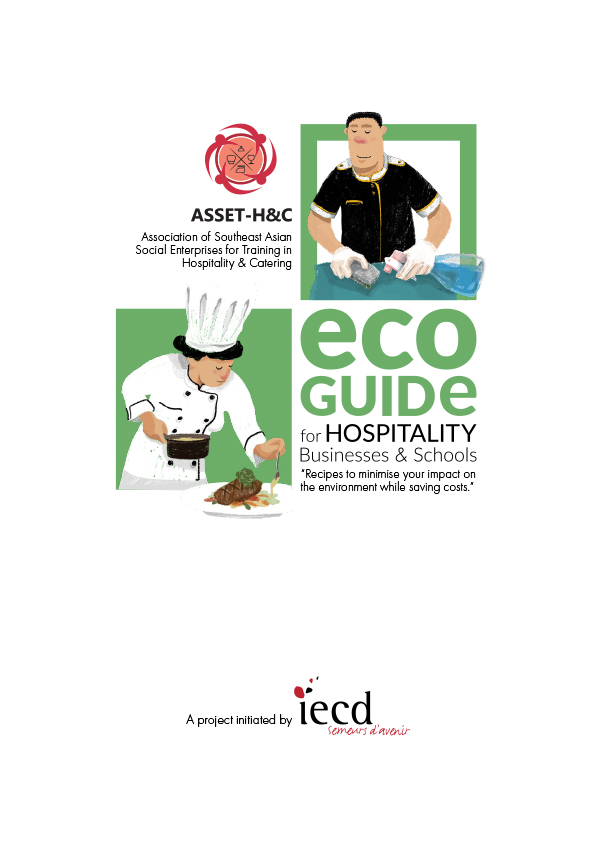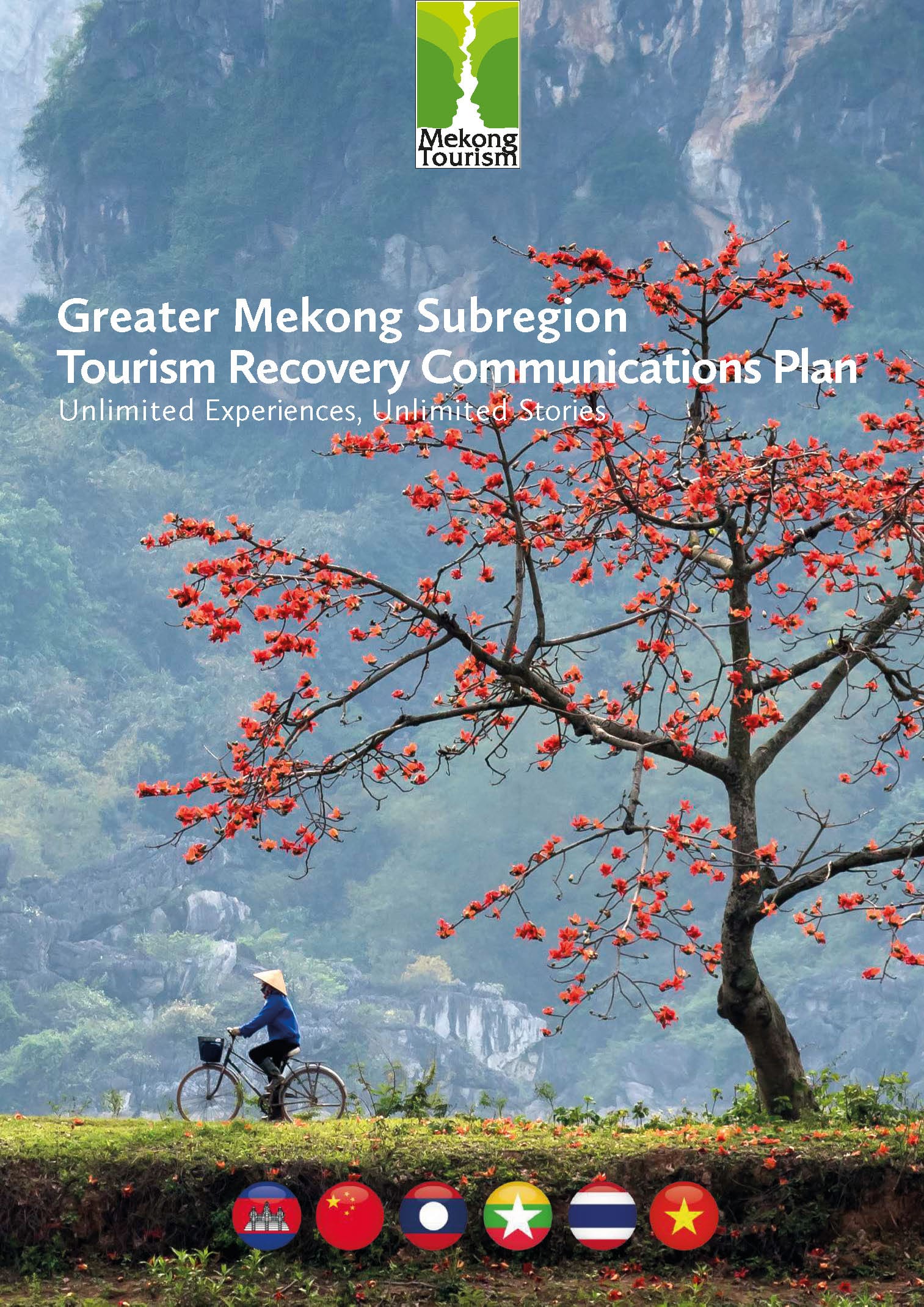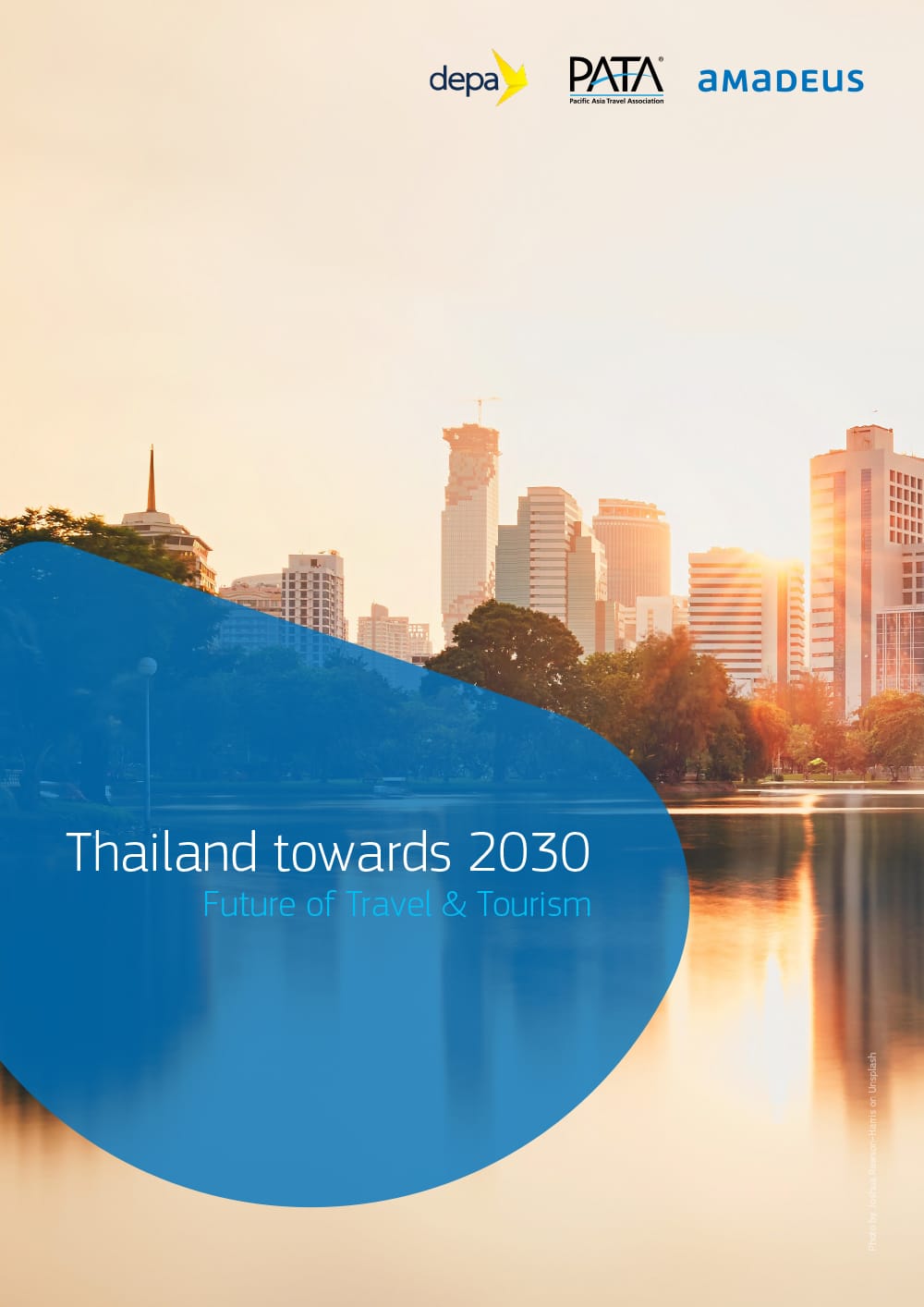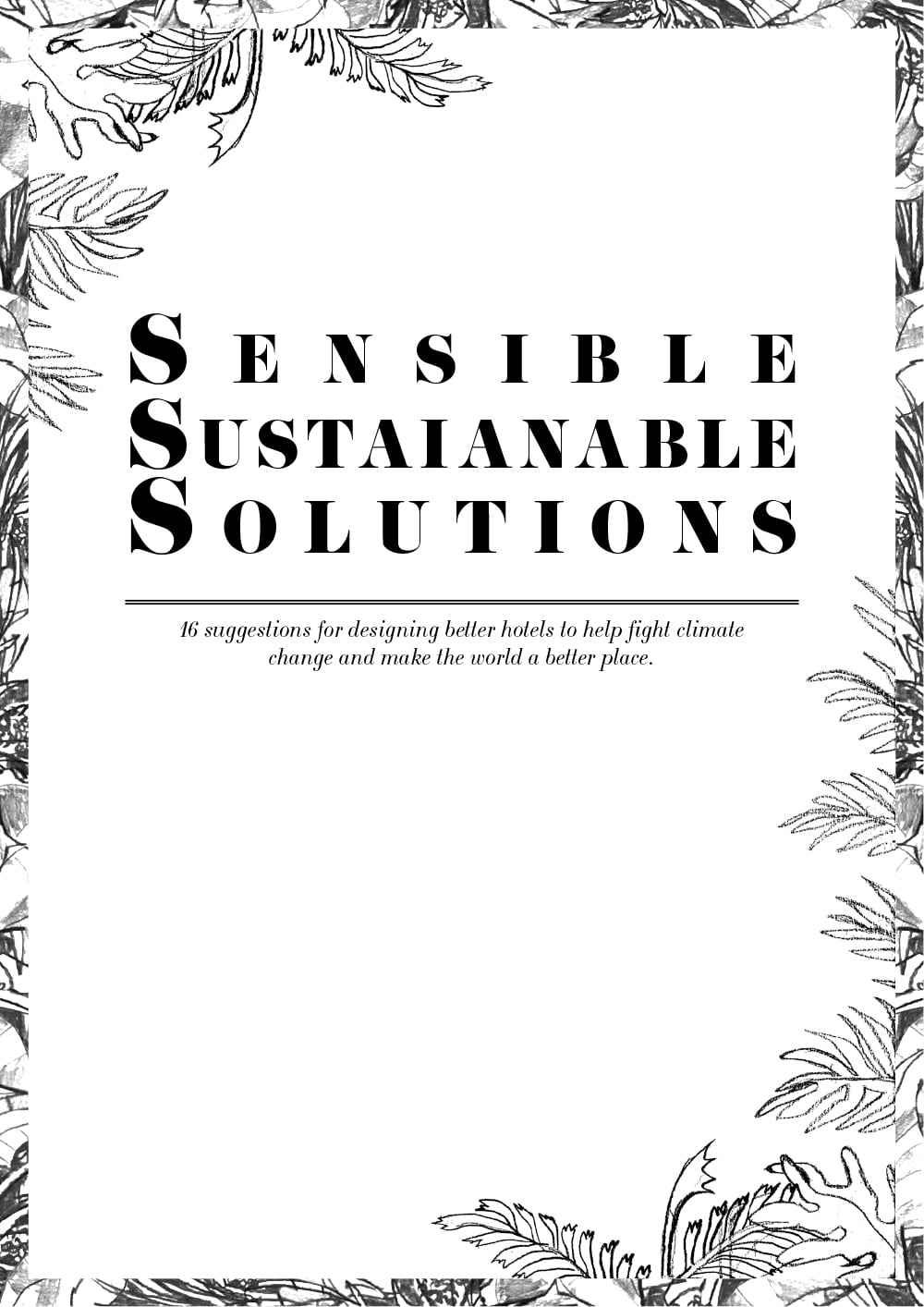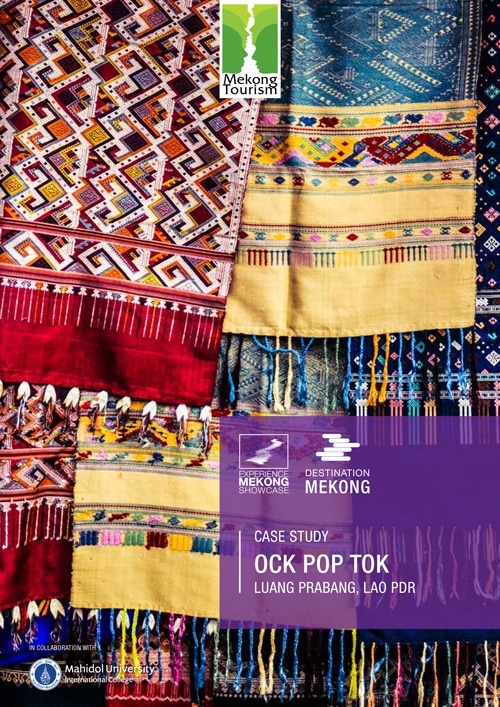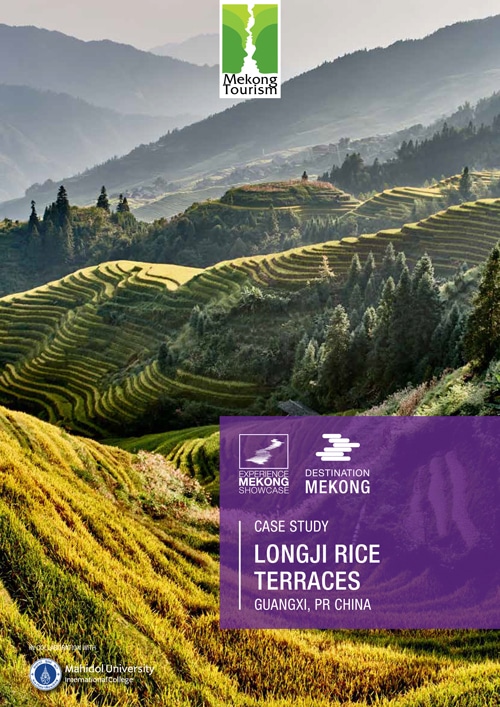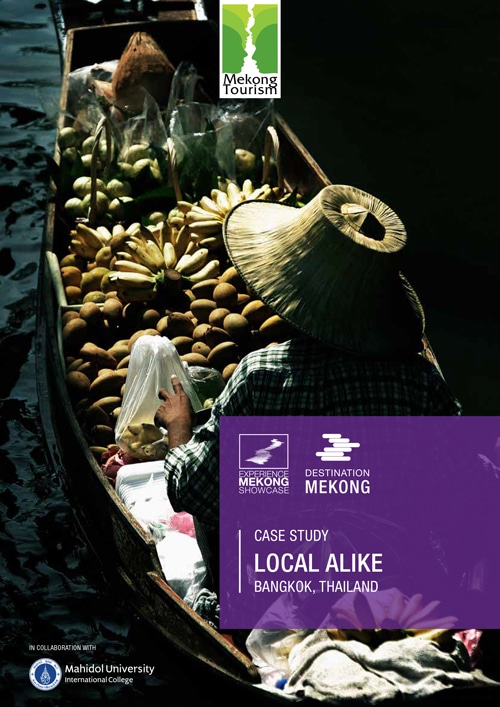As ASEAN pursues greater regional integration and the development
of a single economic community, advancements in the region’s
aviation industry are essential to boost economic connectivity and
tourism. Half the world’s population live within five hours of ASEAN,
making it a natural transportation hub for visiting the region’s sunny
beaches, accessing growing economic opportunities.
GMS Tourism Recovery Communications Plan
As ASEAN pursues greater regional integration and the development
of a single economic community, advancements in the region’s
aviation industry are essential to boost economic connectivity and
tourism. Half the world’s population live within five hours of ASEAN,
making it a natural transportation hub for visiting the region’s sunny
beaches, accessing growing economic opportunities.
Mekong Tourism Collaboration
Tourism in the Mekong Region is steered collaboratively by a public-private framework between the public and private sectors.
The Mekong Tourism Coordinating Office, which is the secretariat of the Tourism Working Group, and Destination Mekong, which is the destination marketing organization led by private sector partners, are both managing initiatives aligned to the GMS Tourism Strategy to create a sustainable and inclusive environment to support businesses and communities in the Mekong Region and provide benefits for all stakeholders – residents, travelers, and businesses.
Continue readingOne Planet Vision for a Responsible Recovery of the Tourism Sector
The One Planet Vision for a Responsible Recovery of the Tourism Sector builds on the UNWTO Global Guidelines to Restart Tourism released by the Global Tourism Crisis Committee on 28 May 2020 with the objective to support tourism to emerge stronger and more sustainable from the COVID-19 crisis. The vision is shared by the members of the One Planet Sustainable Tourism Programme
and partner organizations.
Thailand towards 2030 – Future of Travel & Tourism
Through Smart Tourism, governments have the opportunity to utilize big data and relevant technologies to:
> Attract target travelers by having a better understanding of their preferences
> Facilitate traveler touchpoints along the entire travel journey
> Connect travelers with city infrastructure and commuter networks for a more seamless travel experience
> Serve travelers better by connecting data, travel providers and traveler touchpoints
Sensible Sustainable Solutions
Luxury is DEAD. There is no point in designing lavish hotels just to put heads on beds – every hospitality project should have a purpose and a candle to light. We in hospitality – designers, owners or operators – have the superpower of reaching thousands of people. We should shoulder more responsibility concerning issues like education, clean accessible water, alternative energy, energy consumption, food waste, wildlife protection, and conservation. The big hotel companies are part of nature and society too, not just economy. Here are some ideas of how to do something real…
Continue readingCase Study Phare Circus
Phare, The Cambodian Circus (or Phare Circus) is one of the most innovative, energetic, and amazing performance shows in Cambodia. The 330-person circus was established in 2013 and is an authentic, top-rated, and professional evening show that takes place under a big top.
Continue readingCase Study Ock Pop Tok
The Longji rice terraces have a long history since the beginning of the construction during the Yuan Dynasty (1271-1368) and it was completed in the early Qing Dynasty (1644-1911), with a constructing history of over 800 years. The fascinating rice terraces cover 66 square kilometres of the Longsheng county’s mountain, with the altitude from 300 meters to 1100 metres (Travel China Guide, n.d.). Longji rice terraces have been listed as one of the Globally Important Agricultural Heritage Systems (GIAHS).
Continue readingCase Study Longji Rice Terraces
The Longji rice terraces have a long history since the beginning of the construction during the Yuan Dynasty (1271-1368) and it was completed in the early Qing Dynasty (1644-1911), with a constructing history of over 800 years. The fascinating rice terraces cover 66 square kilometres of the Longsheng county’s mountain, with the altitude from 300 meters to 1100 metres (Travel China Guide, n.d.). Longji rice terraces have been listed as one of the Globally Important Agricultural Heritage Systems (GIAHS).
Continue readingCase Study Local Alike
Local Alike was found in 2013, by the two young and active co-founders, Somsak Boonkam “Pai” and Surachana Pakawaleethorn “Noon”. Pai is acting as a CEO of the enterprise. Local Alike is established in order to address three common problems to local communities namely 1) cultural fading 2) traditional skills and trade loss and 3) problem of migration.
Continue reading
